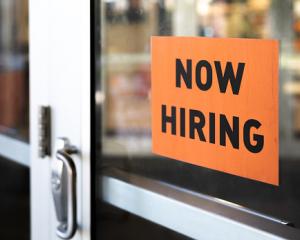The Sydney Morning Herald predicted motorists would pay more for fuel in future as Mr Abbott prepared to break his no-new-taxes promise for the second time by taxing petrol at a higher rate.
The petrol tax will join another tax increase set to be announced in the Budget - a special deficit levy on higher income earners designed to raise about $A2.5 billion ($NZ2.7 billion) a year for its duration.
The Budget will be in deficit and will stay that way for a long time, most economists are forecasting.
In contrast, New Zealand Finance Minister Bill English will announce his Budget on Thursday pointing to a slim surplus for 2014-15. New funding of about $1 billion is expected to be allocated for the coming financial year.
New Zealanders have lower tax rates, on average, than Australians and the economy has been rated as a ''rock star'' compared with others in the OECD.
Even the Reserve Bank is saying housing pressures in New Zealand are easing, albeit slowly.
New Zealand's tax revenue was down in the nine months ended March, but the Treasury continually says the shortfall is down to timing issues.
Across the Tasman, Federal Treasurer Joe Hockey faces a perfect storm of things not going right.
The midyear economic and fiscal outlook in January forecast a run of deficits. They start in the current financial year, which ends next month, with a deficit of $A47 billion, or 3% of gross domestic product (GDP).
They extend out to 2016-17, with a deficit of $A17.7 billion, or 1% of GDP.
Mr Hockey's circumstances differ to those of Mr English partly because of spending that has been promised, such as the paid parental leave scheme, and partly because of revenue to be forgone, such as the carbon tax.
The ageing of the population, which will add to health and disability-support costs, is also a factor.
While those problems are well known, the less discussed problem is where Mr Hockey will get the tax money from to support his economic policies.
Two years ago, in the 2011-12 Budget papers, the Treasury explained one of the downsides of the mining boom - one that has received little attention amid all the focus on personal tax rises and spending cuts.
Mining companies had undertaken a lot of capital investment in the past few years because their profits were under pressure, generating a lot of tax deductions.
Non-mining companies are paying less tax because their profits are under pressure but miners are paying a lower average rate of tax on their profits.
The only way to meet a tax shortfall is lifting rates for personal taxpayers.
AMP chief economist Shane Oliver said spending growth was the reason the Budget had failed to get back to surplus.
''If the Budget problem is excessive growth in spending, that will really become apparent in four years' time; then a `temporary' tax increase is not the best way to address it.''
The previous Labour administration tried to turn a deficit worth tens of billions into a wafer-thin surplus.
The median estimate for the Budget's economic growth forecast for 2014-15 is 2.75%, according to an AAP survey, down from 3% growth forecast in last year's Budget.
Mr Hockey has been preparing Australians for a tough budget. Many economists say that could dampen economic growth and, in turn, reduce tax revenues.
At a glance
• 10 of 11 economists expect no surplus for at least four years
• Median deficit forecast for 2014-15 is $A30 billion
• Deficit forecasts range from $A25 billion to $A40 billion
• Median economic growth forecast for 2014-15 is 2.75%
• Economic growth forecasts range from 2.75% to 3.2%
Source: AAP survey of 11 economists












